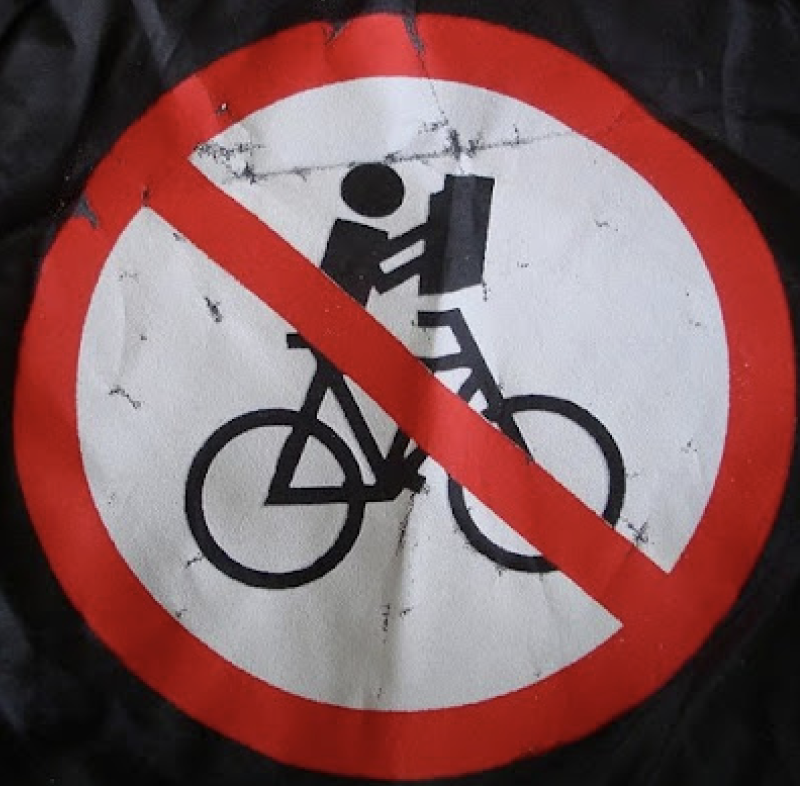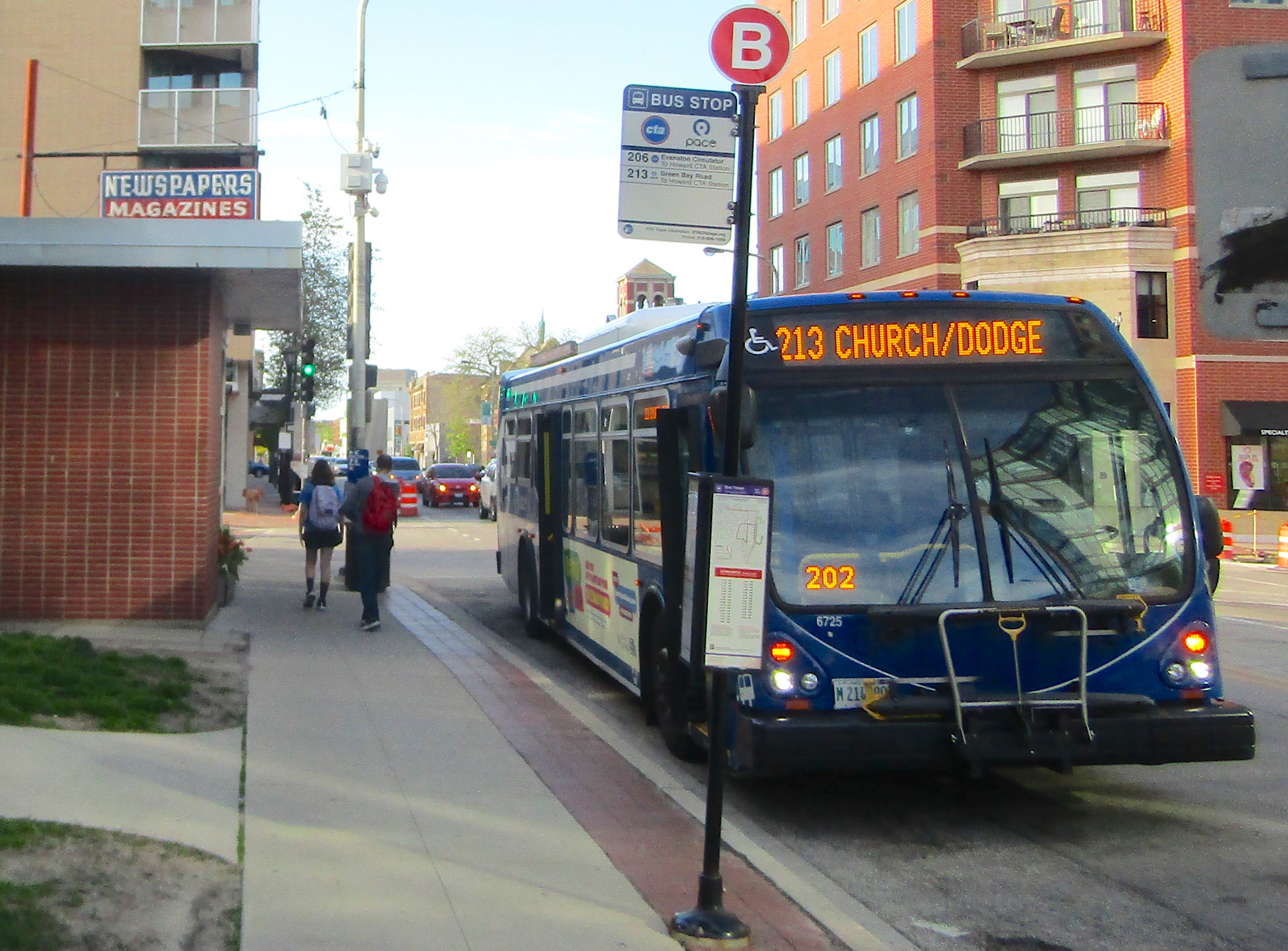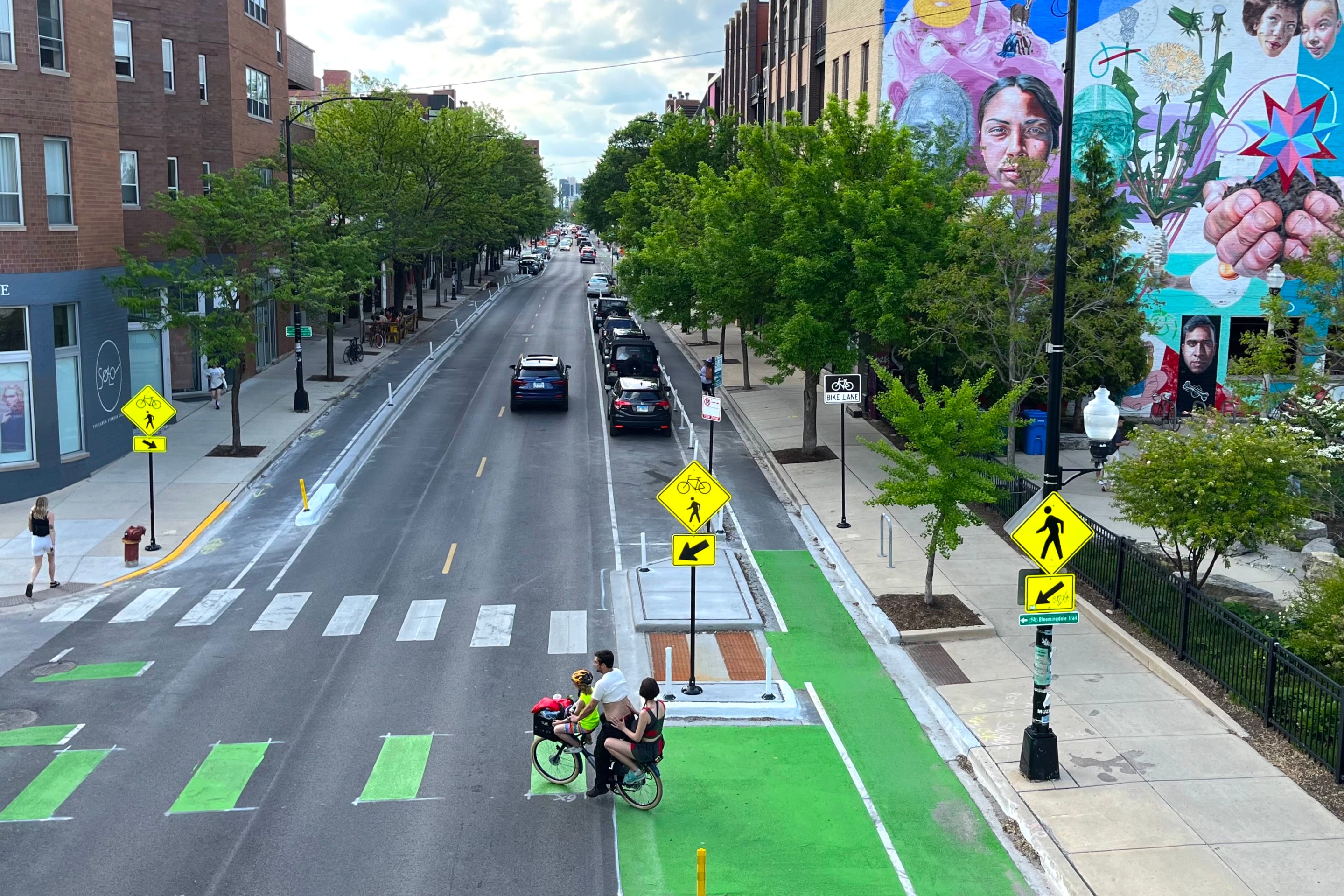Black advocates call for expanding Chicago’s scooter program with a focus on equity
5:56 PM CDT on October 15, 2019
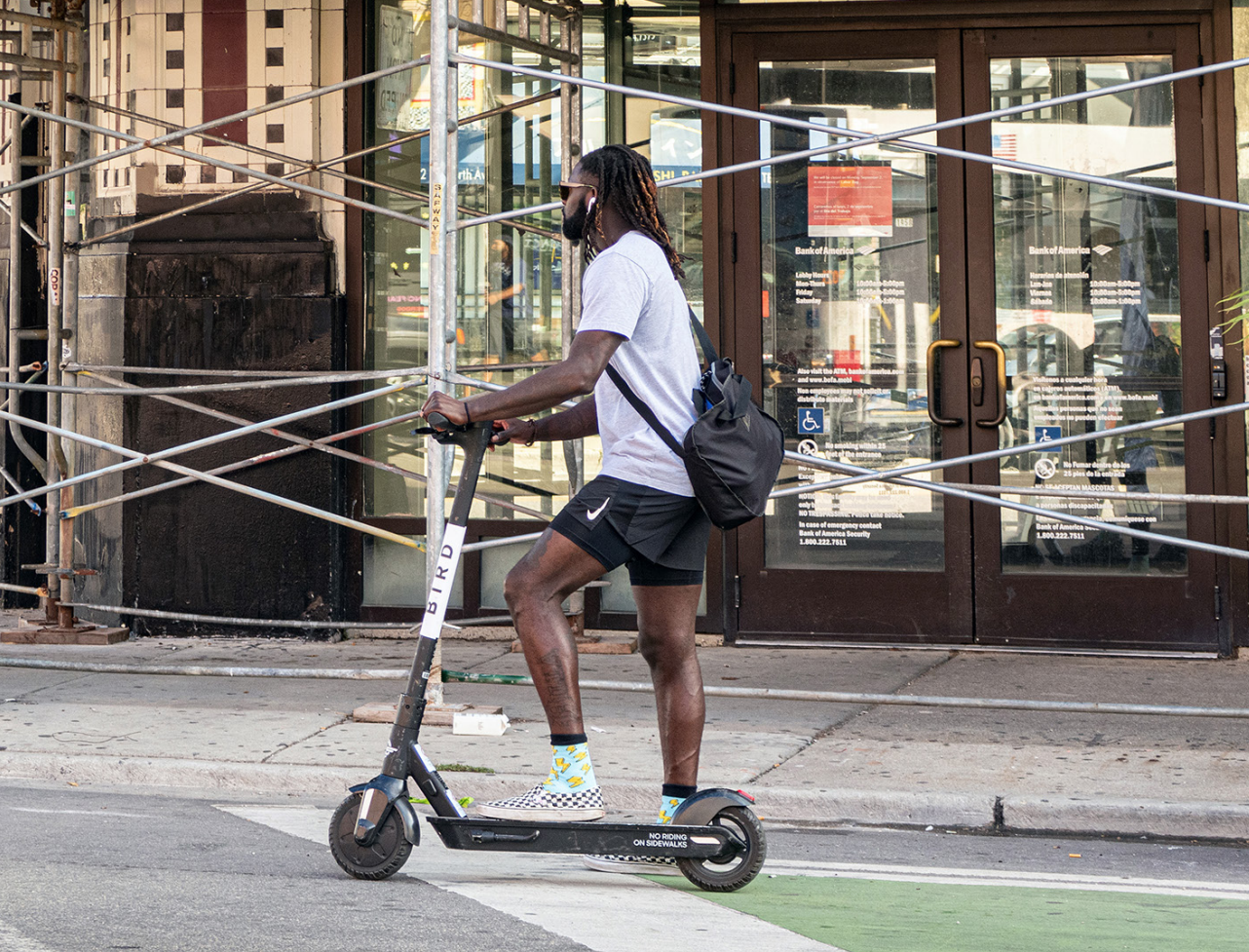
Photo: Active Trans
The dockless electric scooters have scooted from Chicago streets. Today marked the end of our city's four-month e-scooter pilot on the West and Northwest sides, and the ten vendors are required to remove all of their vehicles, a total of 2,500, from the public way or risk having them impounded by the city. The Chicago Department of Business Affairs and Consumer Affairs and the Chicago Department of Transportation, which oversaw the test, announced today that the city is now launching "a wide-ranging and holistic evaluation" to decide whether the program should be expanded citywide and made permanent.
“The pilot was designed to see if scooters can help reduce single-occupancy vehicle use and provide first- and last-mile solutions to support public transit, particularly in areas with fewer transportation options” said BACP chief Rosa Escareno in a statement. “I want to thank Chicago’s residents for participating in this pilot. We have learned a great deal over the past four months and will now use community input and the data to evaluate scooters and determine if and how they can play a role as part of our transportation landscape.”
The evaluation of the pilot program will factor in ridership data, community feedback, particularly from people with disabilities, injury reports, complaints, enforcement action and results from a city-hosted scooter survey. The survey, available here, will be open until October 27.
“We want to hear from all Chicagoans that were impacted by the pilot program,” said CDOT Managing Deputy Commissioner Kevin O’Malley. “The survey will help us understand important details about the program, including how and why trips occurred, the impact of scooters parked on the sidewalk and feedback about specific companies.”
As of October 6, 772,450 reported scooter rides had been taken in the pilot, or roughly three per scooter per day. Through the evaluation, the city will use survey results and trip data to try to determine determine the transportation modes that were replaced by scooter rides (replacing car trips is good; replacing walking, biking, and transit trips is bad), the purpose of these trips, where and when trips occurred and how useful of these rides were in expanding the city’s transportation network.
Yesterday the Active Transportation Alliance released a report that found support from residents for expanding the program, and the advocacy group agreed -- with some strings attached. Notably, Active Trans recommended requiring e-scooters to be parked in docks or painted corrals, or locked to public racks and posts; excluding them from downtown and all off-street trails; and earmarking scooter revenue for safe streets infrastructure, particularly in underserved communities.
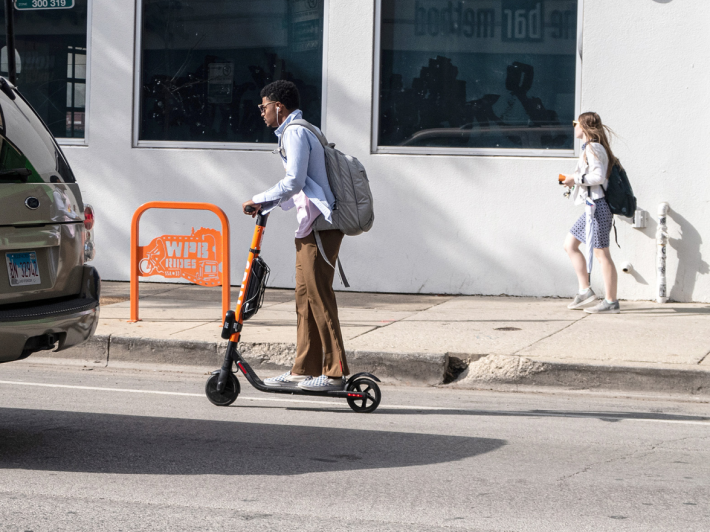
Today Oboi Reed, president and CEO of the mobility justice group Equiticity and L. Anton Seals Jr., lead steward of the community group Grow Greater Englewood also endorsed expanding scooter access citywide, publishing an advocacy statement on the Equiticity blog. Like Active Trans, they called for safeguards to make sure scooters are rolled out in an equitable manner, with an emphasis on increasing mobility and opportunity for African-American and Latino residents.
"Increased mobility in our neighborhoods is critically important for connecting Black and Brown people to jobs, health care, schools, social life, and civic engagement," Reed and Seals wrote. "At the foundation of our work is the fundamental understanding that increased mobility in our neighborhoods will contribute to reducing violence, creating jobs, and improving health... While scooters are just technological devices, they represent the notions of greater accessibility and increased mobility, for Black and Brown people to move freely throughout our beautiful city."
The men noted that the South and West sides are underserved when it comes to safe infrastructure for walking, biking, and riding scooters. They added that the Divvy bike-share program currently has a low density of stations in many Black and Latino communities compared to downtown and the North Side, and many outlying neighborhoods don't have stations at all (although Divvy in the process of expanding the system citywide.)
"Chicago’s permanent scooter program, and an expanded Divvy bike-share program that serves the full city, along with improved transit, traffic safety, and congestion mitigation strategies, represent the most immediate and ideal opportunities for Mayor [Lori] Lightfoot to express the city of Chicago’s operational commitment to racial equity and mobility justice," Reed and Seals wrote.
They stressed the need for the city and scooter companies to invest in and partner with neighborhood organizations and support local businesses. "Sincere, equitable, and impactful engagement is done in full partnership with community-based organizations. Scooter systems will not ride in front of community organizers, instead they will ride behind us, as we lead the work of generating neighborhood demand for increased mobility, ensuring a fair and just distribution of mobility resources."
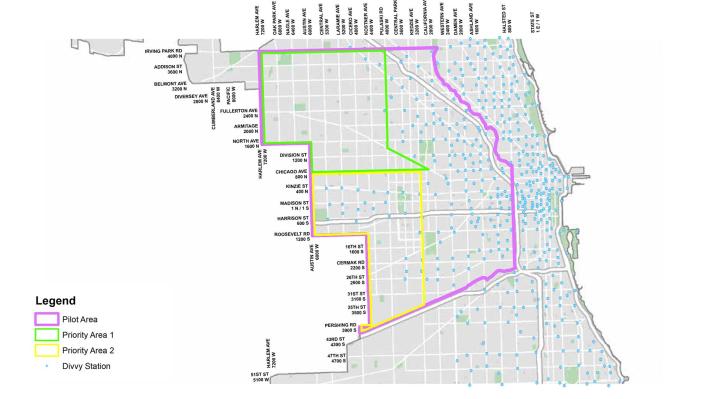
The men pointed to a Lime report on Chicago scooter ridership that found that within the first month of the pilot, nearly 40 percent of their trips started or ended in the two quadrants of the service area that the city had designated as “priority zones” -- largely POC areas with few or no Divvy stations and limited transit options. That suggests there is demand for scooter service in Black and Latino communities.
Reed and Seals called for extending the pilot through November (again, all the scooters are already supposed to be of the streets today, but that might not be that difficult to reverse), and making the program permanent by March. They made additional asks of the city of Chicago and/or scooter vendors, including:
- Formally adopt Equiticity’s Racial Equity Statement of Principle.
- Formally adopt The Untokening 1.0 - Principles of Mobility Justice.
- Require both the city and the scooter systems to achieve explicit racially equitable outcomes, including fair distribution of scooters and reduced-cost membership programs for lower-income residents.
- Remove additional police enforcement as a strategy from the Vision Zero Chicago crash reduction plan.
- "Given the potential for increased mobility in our neighborhoods to accelerate gentrification, establish aggressive, comprehensive policies and legislation to increase affordable housing."
- Create and invest equitably in Open Streets events and other related mobility programming in Black and Brown neighborhoods.
- Invest equitably in community-based education and safety events and programs in Black and Brown neighborhoods.
- Build more barrier-protected bicycle and scooter lanes in African-American and Latino neighborhoods and throughout Chicago, "reflecting the needs, concerns, history, and culture of Black and Brown people."
- Form a coalition of shared-mobility companies operating in Chicago to develop a marketing campaign focused on changing the dangerous behaviors of drivers, cyclists, scooter-riders, and pedestrians.
Reed and Seals are asking supports to sign an online letter endorsing their requests of the city and scooter companies. Read their entire advocacy statement here.
In addition to editing Streetsblog Chicago, John writes about transportation and other topics for additional local publications. A Chicagoan since 1989, he enjoys exploring the city on foot, bike, bus, and 'L' train.
Stay in touch
Sign up for our free newsletter
More from Streetsblog Chicago
Since COVID, Pace ridership has fared better on major corridors and in north, northwest suburbs than in south, west ‘burbs
The suburban bus system's top five busiest routes largely maintained their ridership rankings.
Due to incredible support from readers like you, we’ve surpassed our 2023-24 fundraising goal
Once again, the generosity of walk/bike/transit boosters is fueling our reporting and advocacy.
